TikTok users are racing to download a new app, RedNote, ahead of the proposed US TikTok ban.
Time is ticking if one of our favorite social media platforms is to be saved, as the US plans on banning the video app as soon as Sunday (January 19) this week.
In April last year, the US Congress passed a bipartisan bill to prohibit TikTok unless it secures a new owner.
Federal officials argued the platform poses a ‘national security threat’ on an ‘immense depth’ due to its supposed links with China.
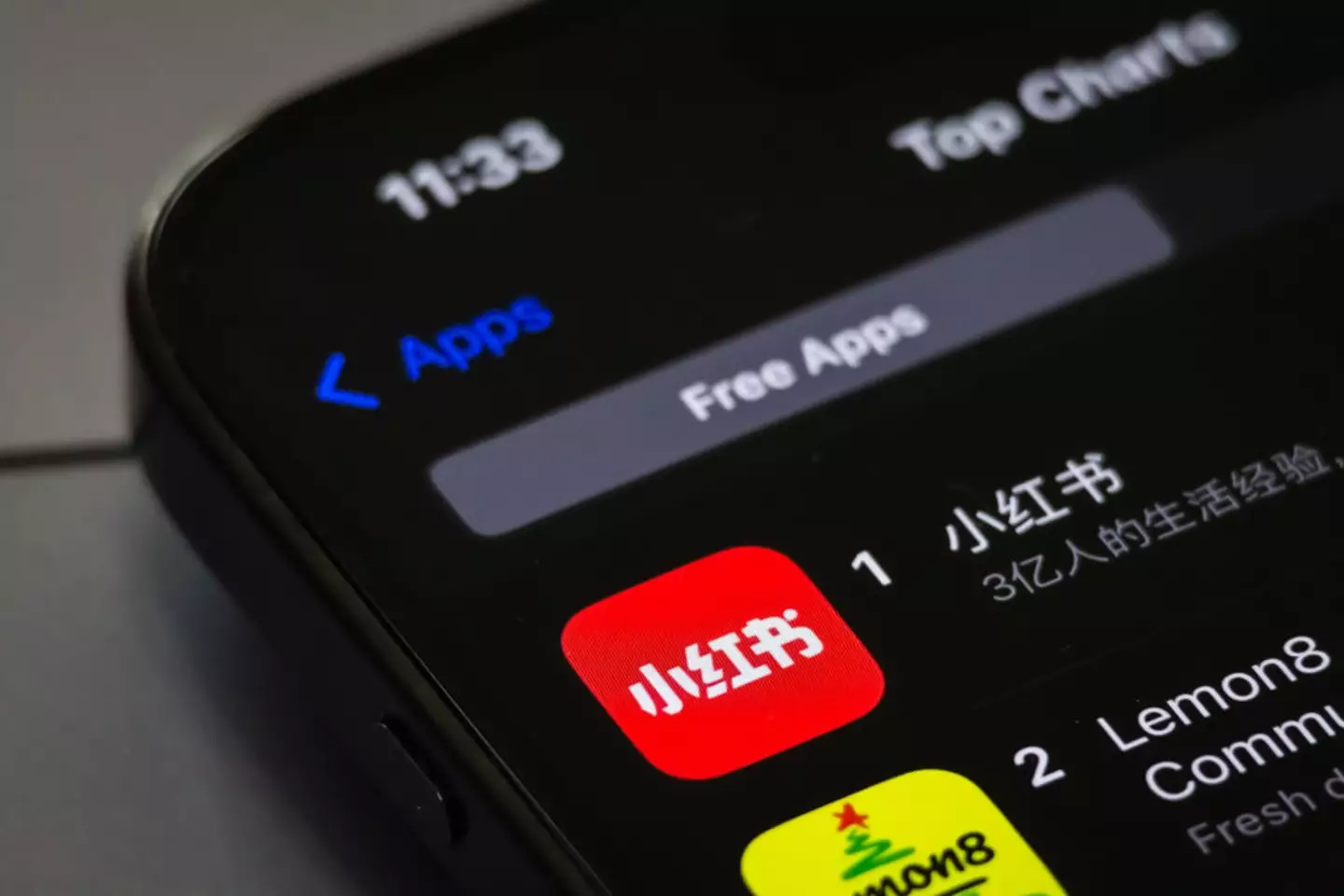
The RedNote app has shot to the top spot on the app store (Cheng Xin/Getty Images)
It is feared US users’ data could be being shared unlawfully with the Communist government.
However, TikTok and its parent company, ByteDance, refute the allegations and are in the midst of challenging the rule in the Supreme Court by highlighting its First Amendment Rights.
But justices threw out the argument on Friday and appeared to side more favorably with the US government.
Justice Elena Kagan said the law is only targeted at the foreign corporation, ‘which doesn’t have First Amendment rights’, while Chief Justice John Roberts added: “They’re not saying TikTok has to stop. They’re saying the Chinese have to stop controlling TikTok’, reports The Independent.”
President-elect Donald Trump, who will take office in a matter of days on January 20, tried to ban TikTok in 2020, but has since sought to delay it.
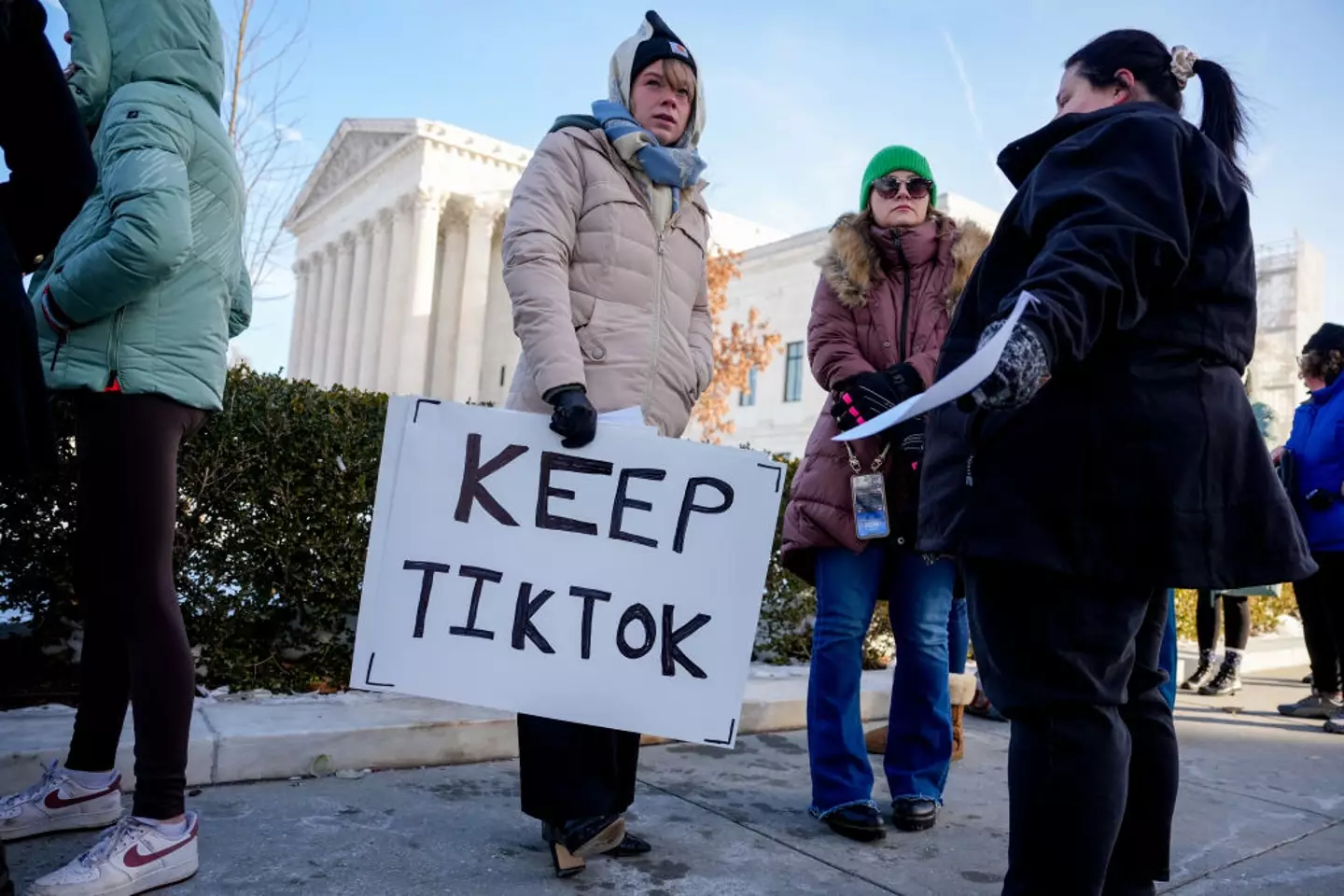
Content creators argue banning TikTok could jeopardize their financial security (Andrew Harnik/Getty Images)
Creators, businesses, influencers, and other users of the app have argued that the ban would decimate the lucrative creator economy that depends on it.
But frantic with worry about a TikTok-less future, thousands of US users have stumbled across what could be suitable alternatives if, or rather when, the dreaded dawn comes.
A free Chinese short-form video app called Xiaohongshu, or RedNote in English, has shot to the top of the Apple App store as of Monday, followed by Lemon8, also owned by TikTok and ByteDance, as users look to migrate across.
The app functions as a cross between Instagram, TikTok, and Pinterest, and has more than 300 million monthly active users, according to The Independent, which still falls below the figures seen on TikTok.
RedNote, based in Shanghai, was founded in 2013 and was valued at $17 billion after raising funds from Chinese investors, with now more than $900 million raised in funding and 2,000 employees, reports CNBC.
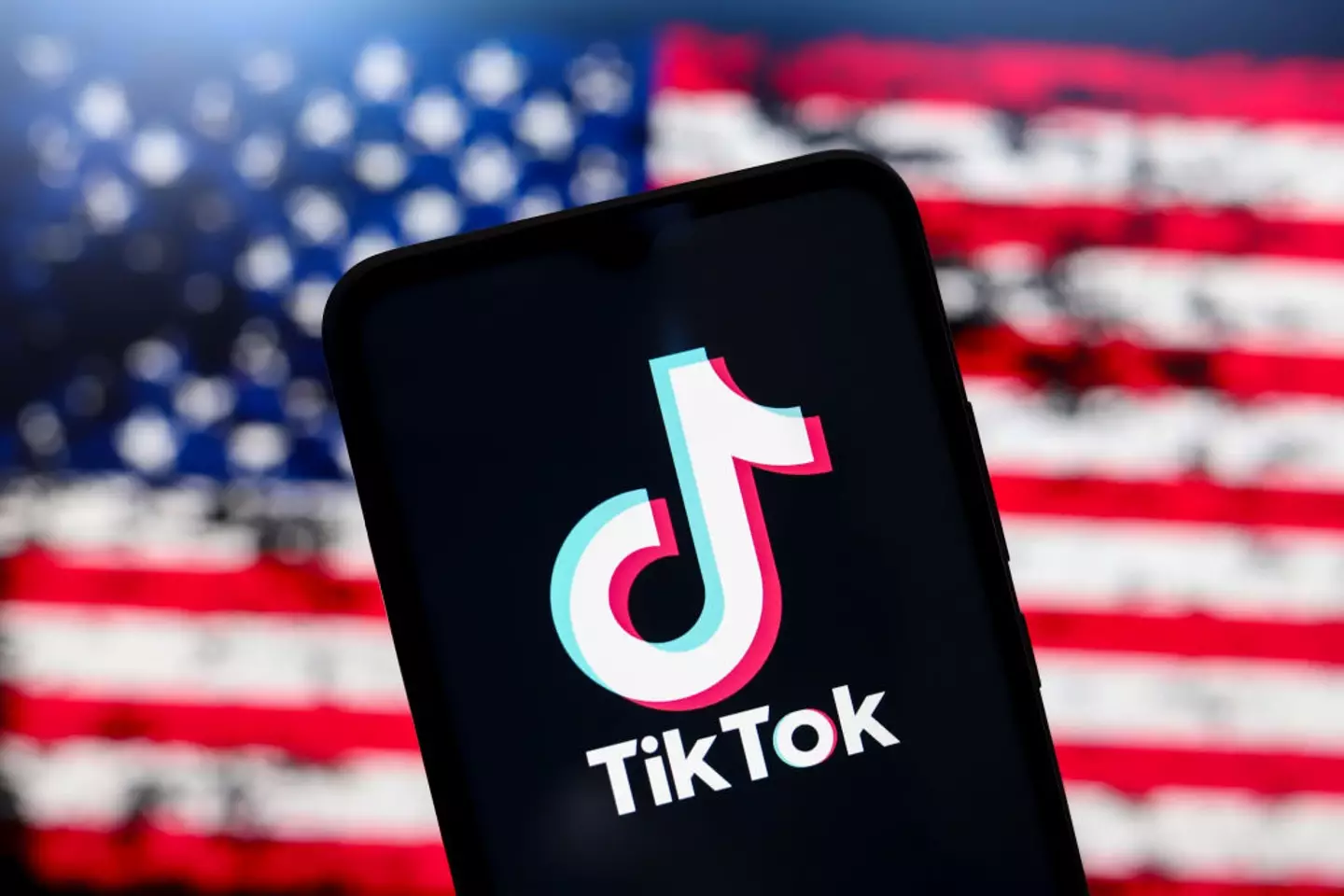
The app could be banned as soon as Sunday in the US (Jaque Silva/NurPhoto via Getty Images)
And many TikTokers appear to be a fan of the alternative already.
One Georgian TikToker who goes by the username allieusyaps said: “They’re trying to ban TikTok and that’s ok”, before explaining to his 200,000 followers that ‘we on that RedNote baby’.
“Look, I might not have a job in the next week”, he continued, “but we about to learn Mandarin baby!
“RedNote is already lit. I ain’t never s*** like that. The content they got over there is really different.
“So yeah, the great migration is here.”
Another TikToker, itsjustheavita, said the alternative could be even better for influencers as ‘Chinese brands have more money than American brands’.
“Let’s get our bag y’all. To the Red Note app it is. Goodbye”, she added.
0 comments
Featured Image Credit: Michael M. Santiago/Getty/Cheng Xin/Getty
Topics: Social Media, Technology, US News, China, TikTok, Business, Money, Politics, Instagram
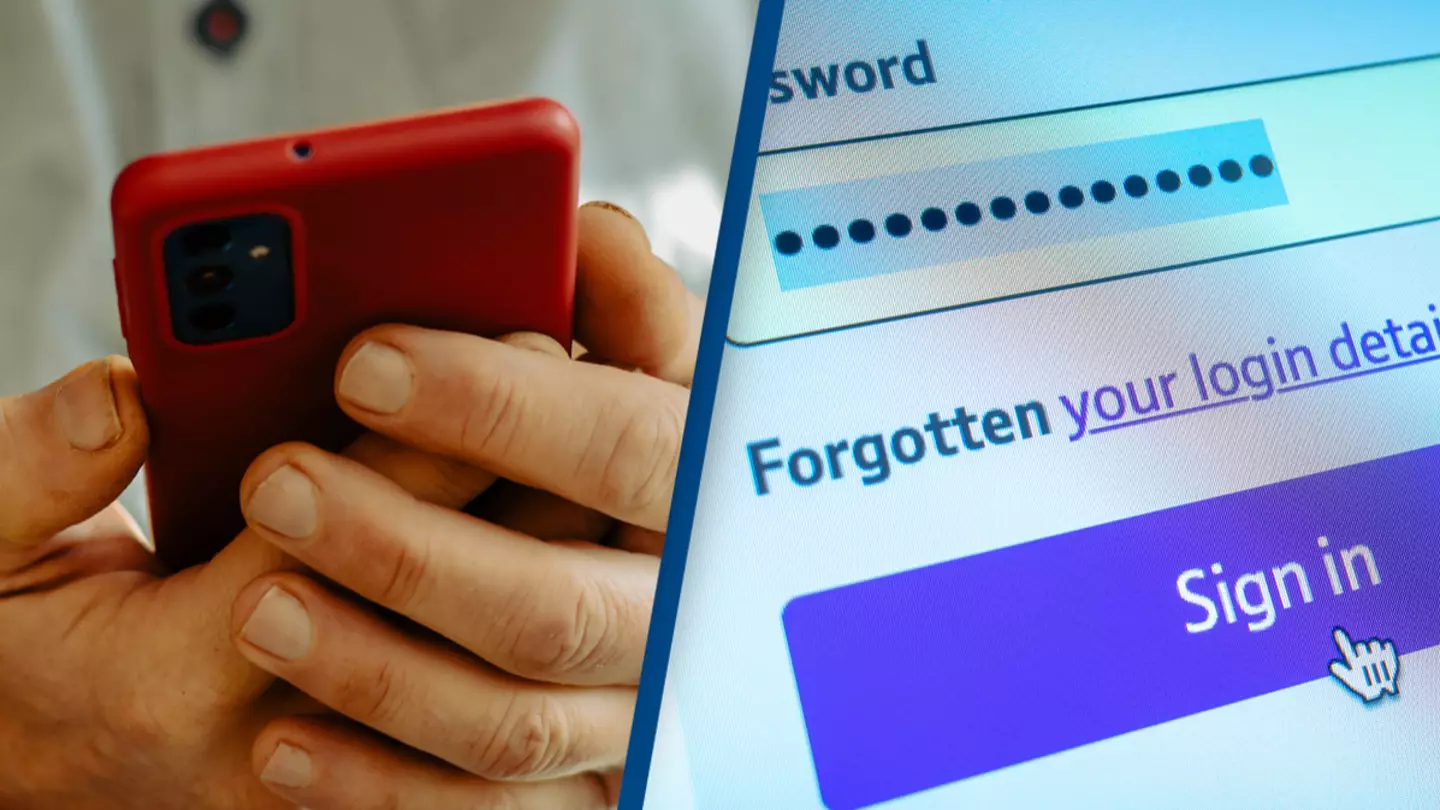
Tech pros have revealed why having a complicated password for your devices might not be the best approach and actually, could be doing more harm than good.
It’s highly likely you’re having to grapple with a seemingly never-ending list of passwords, whether it’s online banking, to access various emails, or for the many different social media accounts we have. And you probably have dozens more for the devices you use for work, too.
It’s a given that keeping our personal information private is an utmost priority, and companies labor the point to employees out of fear of hackers comprising company data and private information.

Passwords are vital at protecting our accounts from hackers and malware (Getty Images)
The theory is that complex passwords are harder to guess or to crack through cyber attacks.
But memorizing all these passwords, which often ‘require’ a myriad of numbers, letters, and symbols to reach a lengthy character count, can quickly become a burden – and you might be inclined to write a physical list of them all in case you forget.
But according to the US National Institute of Standards and Technology (NIST), which develops guidelines to help organizations safeguard their tech, complex passwords are no longer recommended.
As reported by Forbes, NIST recently published new guidance in keeping government information systems secure and made some notable changes to the long-standing password best practice that has been drilled into us.
If you’ve ever used Google Chrome’s password generator, you’ll have noticed how it automates a password crammed with lower case and capitalized letters, numbers and random symbols that you’re unlikely to ever remember without jotting down or saving them in Google’s Password Manager.

Writing down passwords or storing them in your phone is a bad idea (Getty Images)
And here’s here where NIST warns a complex password runs the risk of compromising your data and actually weakening your security as a hacker could potentially find your password notebook or, by simply using your device, gain access to all your passwords at once.
NIST advises the length of passwords is an easier and therefore safer way to protect your account compared to complexity.
As the guidance notes, online services require users to create passwords with a mixture of different characters, but ‘analyses of breached password databases reveal that the benefit of such rules is less significant than initially thought’.
What this means is that you’re better off using a long string of words that you will be able to remember in a password than a random jumble – and each password should contain a different string of words.
By using a short sentence or sequence of words, you’re less likely to store the passwords in a note on your phone or reuse the password again for another account, which jeopardizes all your accounts at once.
That, and it’d close to mathematically impossible to be able to crack a password of 64-characters made up of real words with the odd capitalized letter and symbols.
Further fueling our risky password patterns is the requirement that many organizations have enforced to change our company password every 60 to 90 days, which NIST is also no longer recommending.
Conversation8 Comments
Featured Image Credit: Getty Images/Crispin la valiente/Getty Images/SEAN GLADWELL
Topics: Technology, Business, US News, Social Media, Money, Google
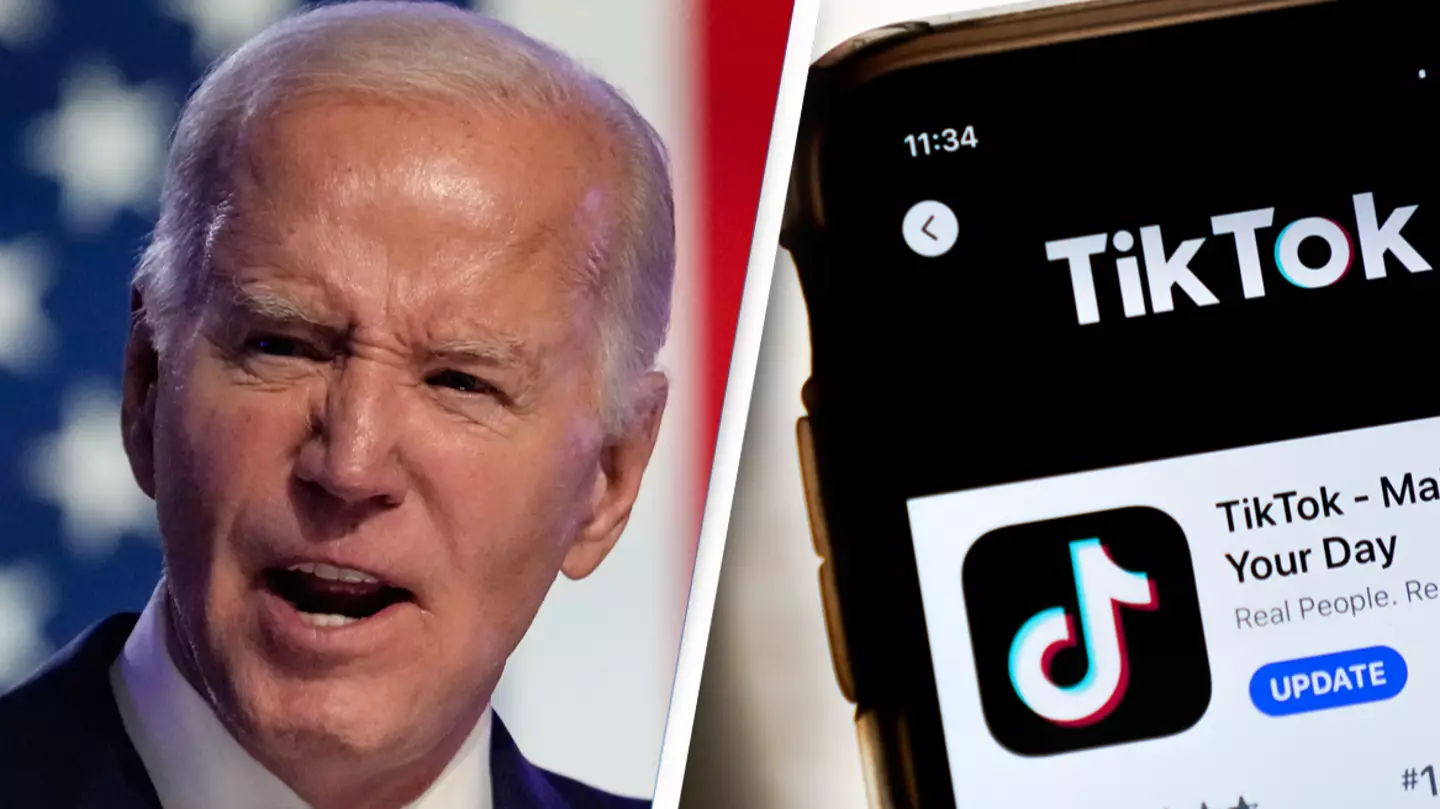
President Joe Biden has expressed his intentions to sign off a bill that would ban TikTok in the US.
America has long had concerns about the video sharing app, which is used by 150 million people each month – making it the country with the largest TikTok audience.
In fact, calls to ban the social media platform from the States dates back years.
In 2022, Federal Communications Commission (FCC) Commissioner, Brendan Carr, urged tech companies to remove TikTok from their American app stores.
And on Friday (March 8), President Biden told reporters if a bill came to pass, he’d ‘sign it’.
But what is Congress’ issue with the seemingly harmless platform?
According to Carr, the app ‘harvests swaths of sensitive data’ that’s then supposedly accessed in Beijing.
The developers behind TikTok – ByteDance – are partly owned by the Chinese state and have previously been criticised for its ties with the Chinese Communist Party (CCP), which has been one of the main causes of concern for the US Government.
There are fears that China will use the data to its advantage for ‘espionage’.
As well as fears US users’ data are being used by the Chinese, lawmakers are worried that China controls the apps algorithms to push propaganda or misinformation.
TikTok has previously denied that it shares information with the Chinese government.
Previous attempts to ban TikTok fell through, but efforts have recently been renewed in the wake of the new ‘Protecting Americans from Foreign Adversary Controlled Applications Act’ being put forward.
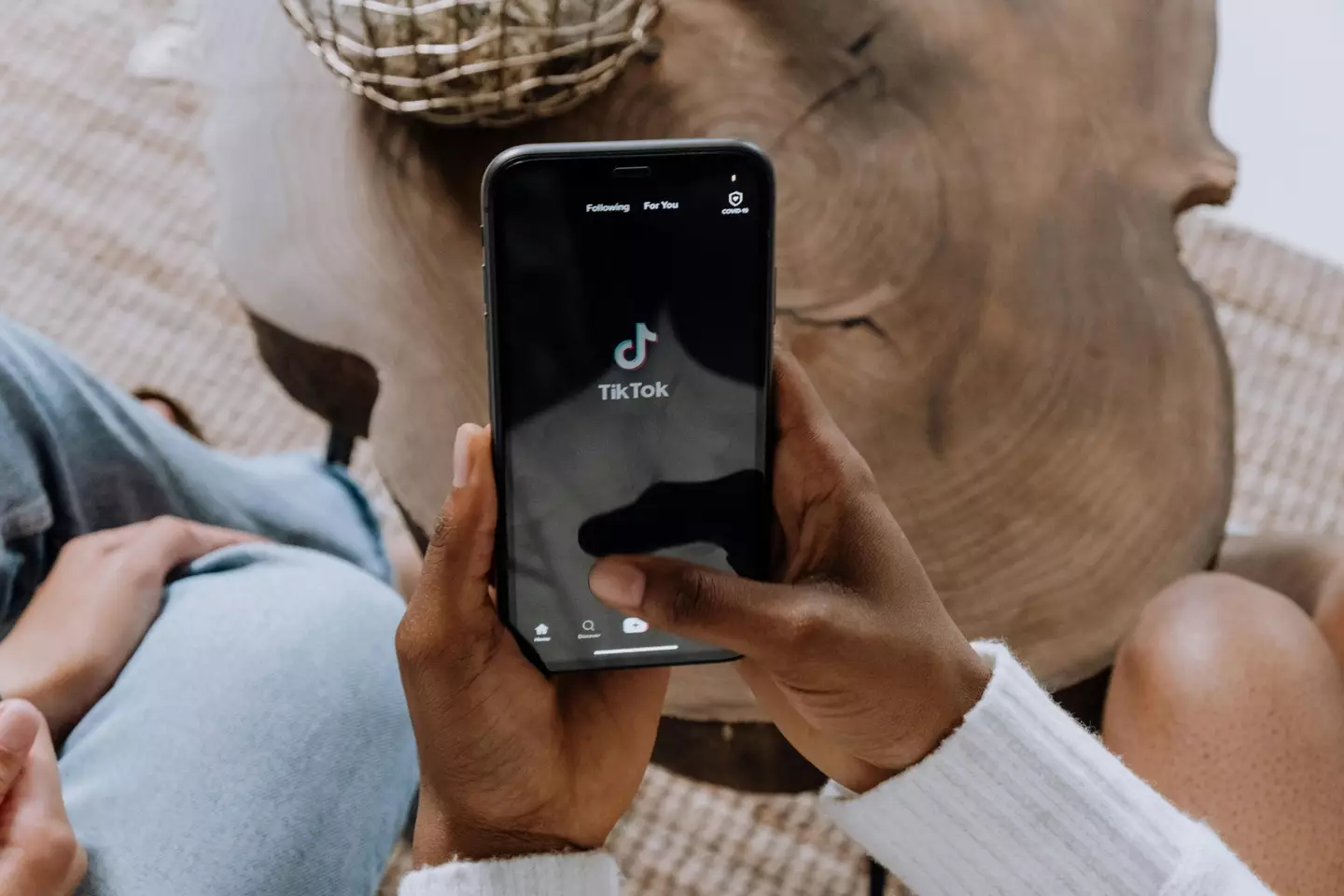
cottonbro studio/Pexels
Part of the 12-page document explains that it was created ‘to protect the national security of the United States from the threat posed by foreign adversary controlled applications, such as TikTok and any successor application or service and any other application or service developed or provided by ByteDance Ltd. or an entity under the control of ByteDance Ltd.’
As to what ByteDance can do to stop TikTok being banned in the US, it will need to ‘change it’s basic ownership structure’.
Rep. Mike Gallagher said: “TikTok can continue to survive, people can continue to do all the dumb dance videos they want on the platform, friends and all that stuff.
“But the basic ownership structure has to change.”
Basically, the US wants ByteDance to be sold off so it no longer has ties to the Chinese Government.
Who they want it to be purchased by hasn’t be specified, however.
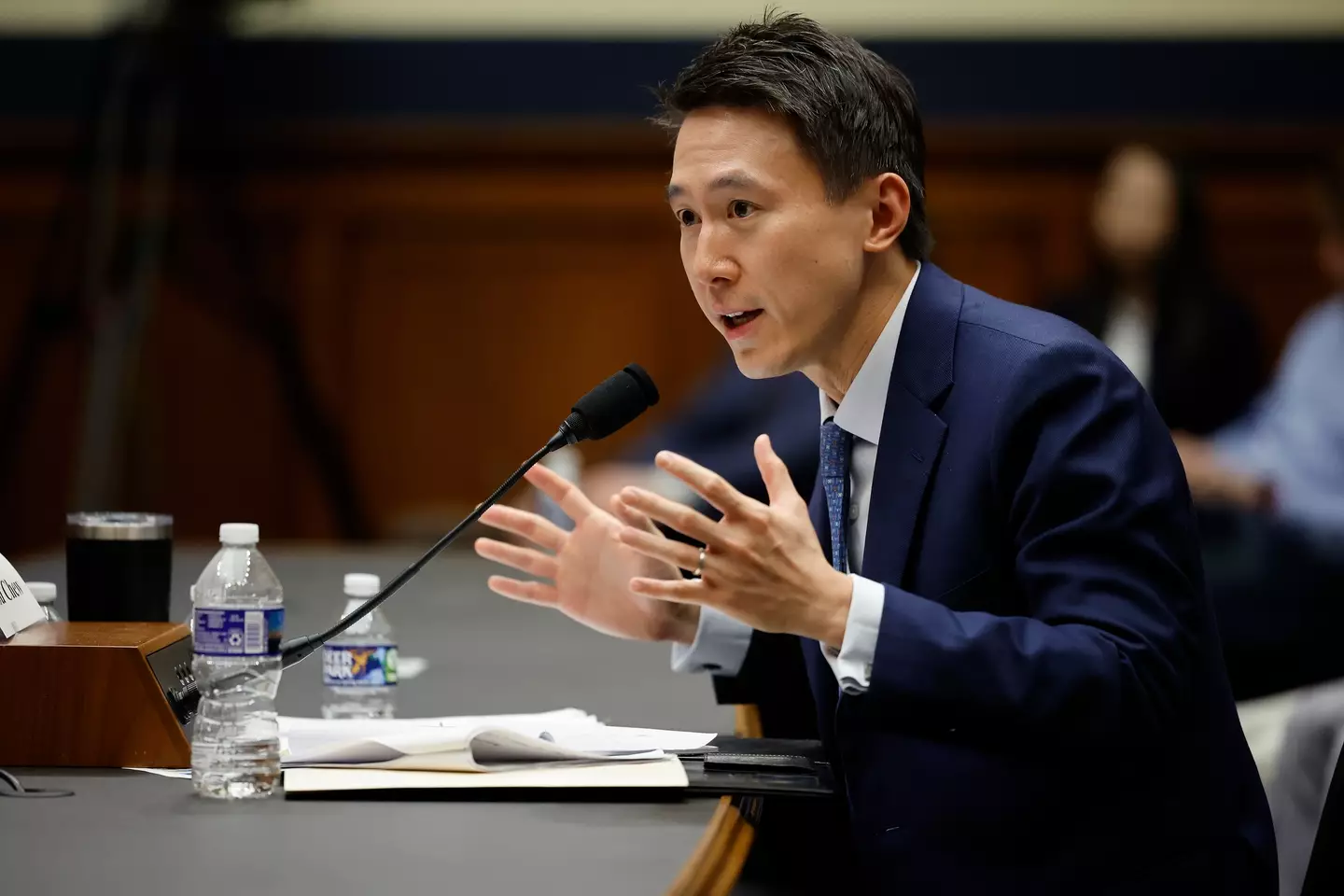
Chip Somodevilla/Getty Images
The newly proposed bill hasn’t been well received in China.
TikTok CEO Shou Zi Chew said in a statement: “This bill is an outright ban of TikTok, no matter how much the authors try to disguise it.
“This legislation will trample the First Amendment rights of 170 million Americans and deprive 5 million small businesses of a platform they rely on to grow and create jobs.”
The bill is slated to get a vote on the House floor next week.
Featured Image Credit: Drew Angerer/Getty Images
Topics: Social Media, Technology, TikTok, Joe Biden, News, US News, China, Politics
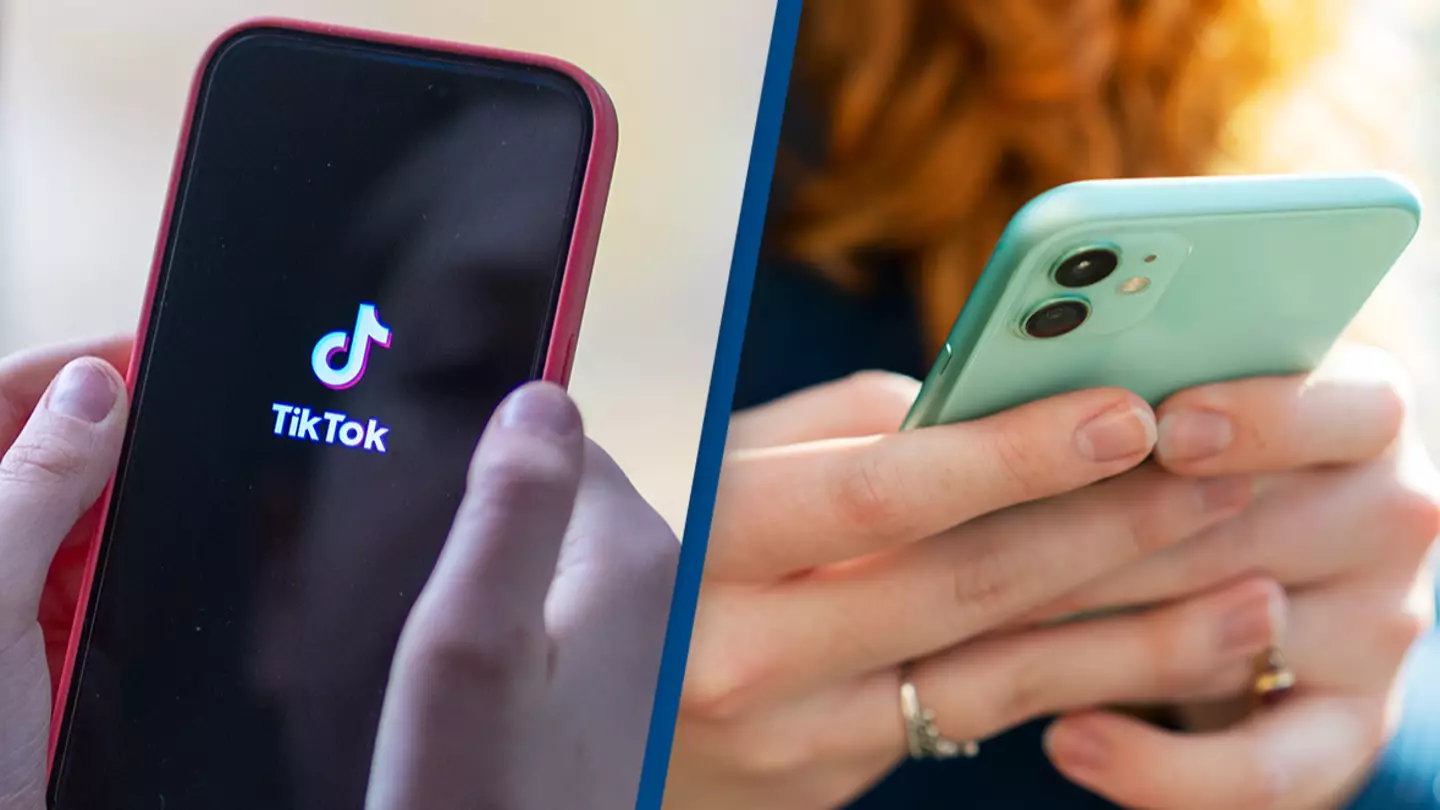
The US House of Representatives has passed a bill which would ban TikTok in the US if its owners don’t sell.
The bill would force the app’s owner ByteDance to sell its stake in the platform within six months or have the app be banned from US app stores and web hosting services.
It was introduced amid concerns over ByteDance’s connections to the Chinese Communist Party (CCP).
The bill passed by a vote of 352-65, and will now go on to the Senate, according to the Associated Press.
TikTok currently has around 170 million users in the US.
Lawmakers in favour of the bill argued that ByteDance is beholden to the Chinese government, and that it could request the data held by TikTok whenever it wants.
However, opponents have criticised the bill over what they claim are draconian measures which raise concerns around freedom of speech.
Both opposition and support for the bill has been bi-partisan.
President Biden has also confirmed that if the bill is passed by Congress, he will sign it.
Rep. Cathy McMorris Rodgers was in favour of the bill and made her position clear to TikTok.
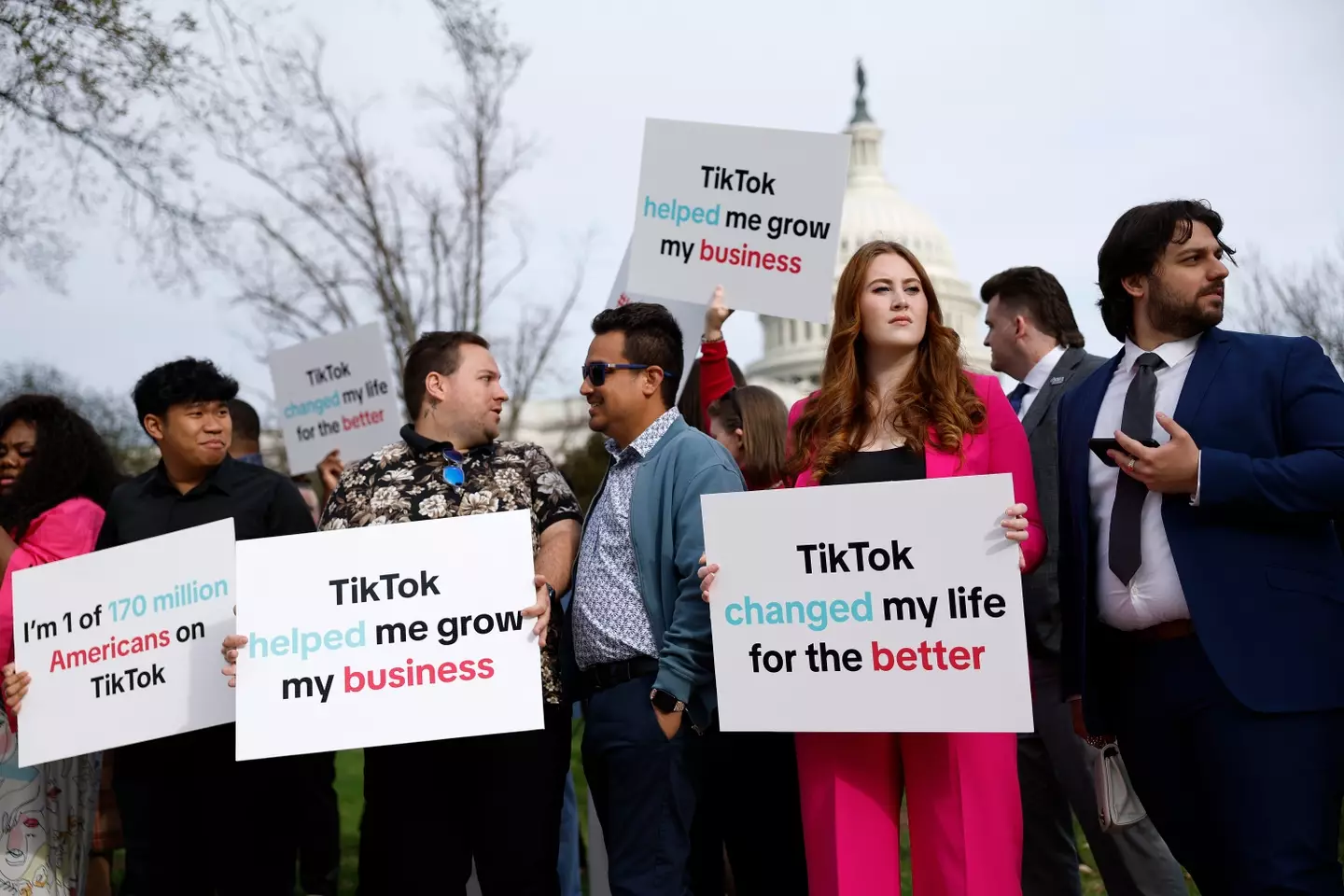
Anna Moneymaker/Getty Images
She told AP: “We have given TikTok a clear choice. Separate from your parent company ByteDance, which is beholden to the CCP (the Chinese Communist Party), and remain operational in the United States, or side with the CCP and face the consequences. The choice is TikTok’s.”
But opponents of the bill have criticised it for employing ‘CCP-style oppression’ to address their concerns around data security.
Rep. Tom McClintock told AP: “The answer to authoritarianism is not more authoritarianism.
“The answer to CCP-style propaganda is not CCP-style oppression. Let us slow down before we blunder down this very steep and slippery slope.”
TikTok has denied that it can be used as a tool of the Chinese government.
The company has said that it has never shared user data from the US with Chinese authorities, and that if asked to do so it will refuse.
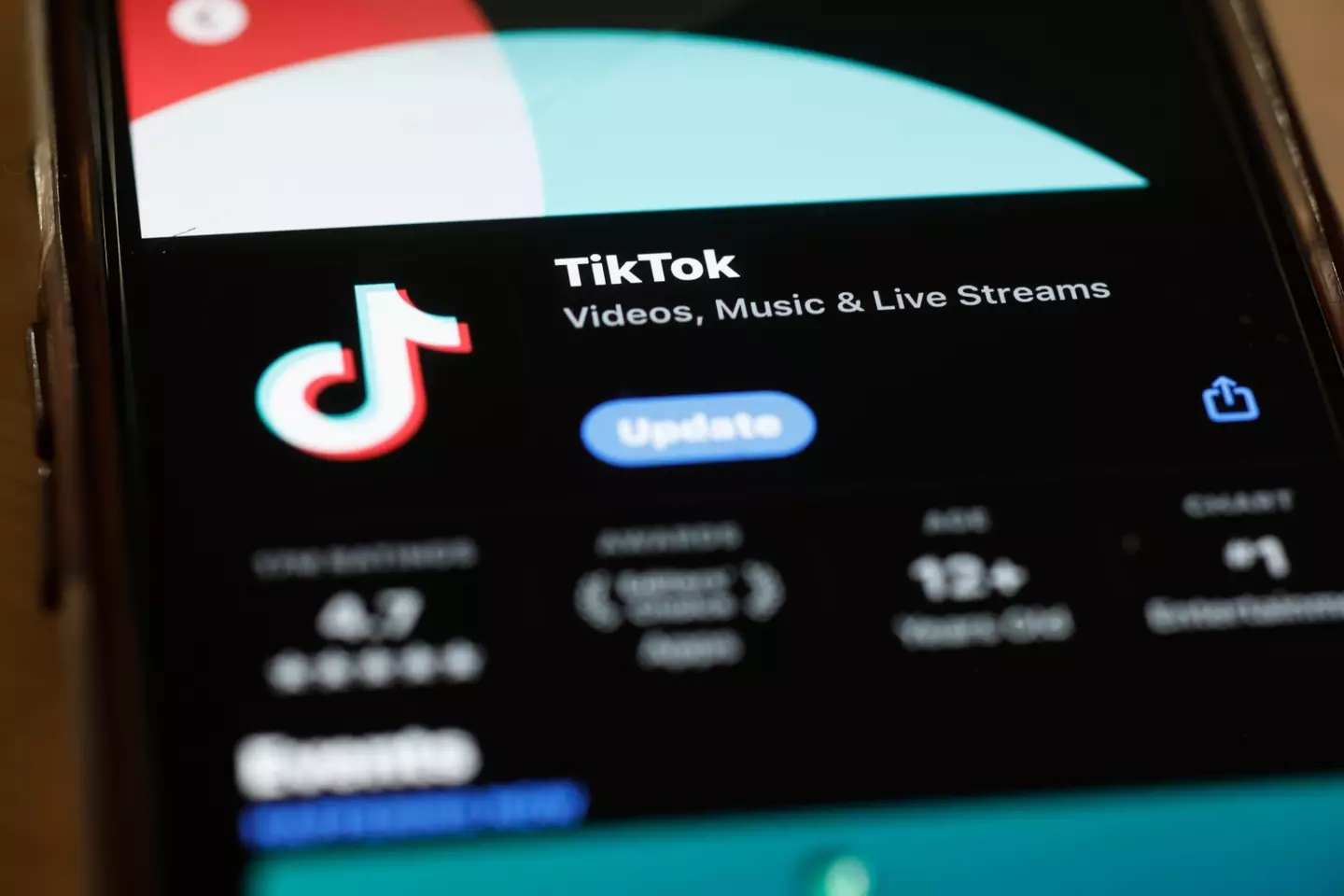
Michael M. Santiago/Getty Images
Passing the House is only the first step for the bill. In order to become law it will need to be passed by the Senate.
Senators have already indicated that it will need to undergo a review before its path can be decided.
Critics of the policy have also highlighted that many of TikTok’s practices regarding data collection are not unique to this platform, but are also done by US tech companies.
Rep. Sara Jacobs said: “Not a single thing that we heard in today’s classified briefing was unique to TikTok. It was things that happen on every single social media platform.”
Others have expressed concern over the many small businesses which rely on TikTok for publicity.
Rep. Robert Garcia said: “This idea that we’re going to ban, essentially, entrepreneurs, small business owners, the main way how young people actually communicate with each other is to me insane.”
A spokesperson for TikTok told UNILAD: “This process was secret and the bill was jammed through for one reason: it’s a ban.
“We are hopeful that the Senate will consider the facts, listen to their constituents, and realize the impact on the economy, 7 million small businesses, and the 170 million Americans who use our service.”



